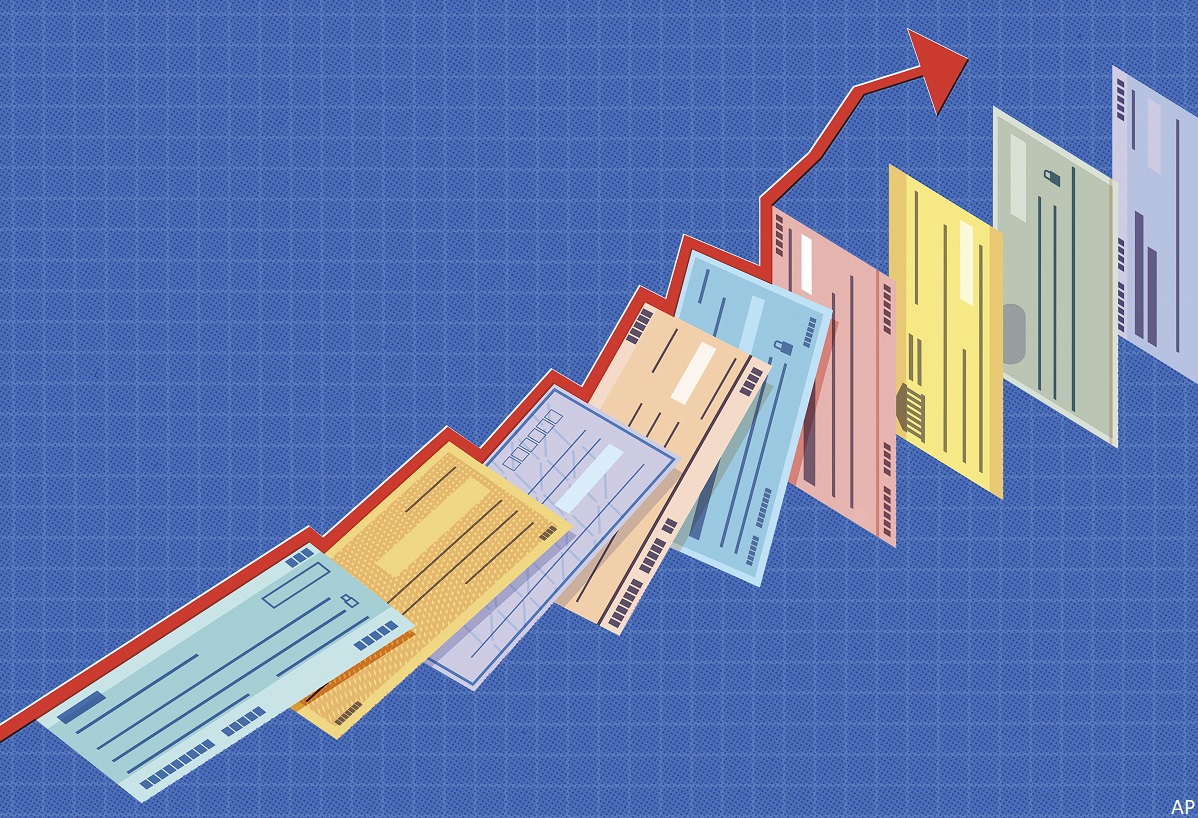 “Great news, customer. You’re pre-approved for a personal line of credit.” Sounds familiar? Or “Congratulations! You have been pre-approved for the [insert Bank name] no-fee credit card.”
“Great news, customer. You’re pre-approved for a personal line of credit.” Sounds familiar? Or “Congratulations! You have been pre-approved for the [insert Bank name] no-fee credit card.”
Chances are you’ve noticed an uptick in variations of these offers from your bank recently. Canadian lenders have been bombarding consumers these days with letters offering pre-approved credit cards and personal lines of credit with generous credit limits.
But given high inflation, rising interest rates and an uncertain economic environment, should you accept these enticing offers?
Here’s a primer on how to weigh the decision and what could go wrong if you gave into temptation without careful consideration.
Why Are Consumers Getting Taking on Credit?
Banks may be hoping to capitalize on the pent-up demand among consumers in the post-pandemic world. “My suspicion is that as the rhythm of our lives continues to build back to its pre-pandemic pace, we are travelling more, shopping more, eating at restaurants more than we have in the last few years, all of which are activities that make credit an attractive product for the financial institutions to promote,” says Anne Arbour, financial educator at the Credit Counselling Society, a registered, non-profit service for consumers.
Should Consumers Accept More Credit?
There is no one size fits all answer to whether consumers should take on more creidt. While it may make sense for some individuals to take on credit, other personal situations may require restraint. Either way, the onus falls on the consumer themselves to assess if accepting an offer of easy credit would serve them well or if it would be detrimental to their overall financial health.
“At any time, but especially right now in these times of rapid inflation and interest rate volatility, it’s important for each consumer to know what is truly right for them and not to just be persuaded by a convincing marketing campaign,” says Arbour.
Financial advisors, credit counsellors and consumer organizations such as the Credit Counselling Society are certainly available to help with that self-assessment.
How to Decide Whether to Take More Credit
When deciding whether to accept a pre-approved credit card or line of credit offer from your bank, there are several factors to consider: interest rate, fees, credit limit, rewards and benefits. However, “the first question to ask yourself is why are you tempted to accept the offer,” says Arbour.
Some people may feel good about themselves to have received an offer for a large line of available credit, “but the risk lies in how tempted you will be to actually use those funds without a firm plan for repayment,” cautions Arbour.
Even if it’s for a contingency, relying on a loan as an emergency fund without a plan for repayment can have long-term implications for your credit score and cash flow, she adds.
Is it a dire financial need that is compelling you to seriously consider the offer? It’s important to remember that credit is not inherently bad or good. “It is a tool for financial flexibility and convenience, but it was never designed as a mechanism for long-term borrowing,” Arbour notes.
Taking on too much debt now to solve a financial challenge that might be more long-term in nature does not serve a consumer’s long-term financial interests. “Understanding the true costs, including all administrative charges and extra fees, is an important piece in assessing the true nature of any offer,” Arbour notes. Needless to say, if you already have a high level of debt, it may not be a good idea to take on more credit.
What Could Go Wrong if I Accept More Credit?
If you accept a pre-approved credit card or line of credit offer without careful consideration, several things could go wrong. Access to easy credit could cause you to be tempted to overspend and take on more debt than you can afford to repay. Any missed payments down the road could damage your credit score, and incur late fees, and additional interest payments. In some cases, the lender could decide to increase your interest rate, making it more expensive to service your debt.
“It’s important for a consumer to understand that they should enter any such arrangement with their eyes wide open, truly understanding all the terms and conditions attached to it,” says Arbour, stressing the need “to have a plan, both for the use of the funds and for their repayment.” If something sounds too good to be true, it probably is, and that can sometimes be especially true when it comes to offers of credit, she asserts.
Could Short-Term Easy Credit Be a Way Out of Financial Hardship?
An uncertain economic environment, high inflation and soaring cost of living can make it difficult for consumers to keep up with their payments. Beware that in uncertain times consumers may face job loss, reduced income, or other financial shocks. This can make it difficult for them to keep up with their credit card payments and other high-interest loans. As a result, they may start to fall behind on their payments, which can lead to a higher probability of loan default.
Arbour questions the very concept of short-term credit. “What seemed like a lifeline to solve a short-term issue can easily become a long-term problem that can impact one’s credit and cashflow for many years to come,” she warns.
In any case, credit cards were not designed as a mechanism for long-term borrowing. “It’s simply too expensive to make that a practical option,” says Arbour. “If someone has hit a rough patch – like many are feeling these last few months of high inflation – what is the plan to repay?” she asks.
There will always be offers of one kind or another, and as tempting as they might be, “it’s really the consumer’s responsibility to understand the implications and to make a decision based on their own personal circumstances,” Arbour argues. Taking steps to be informed and better educated will give consumers the confidence to make sound financial decisions around borrowing.




















